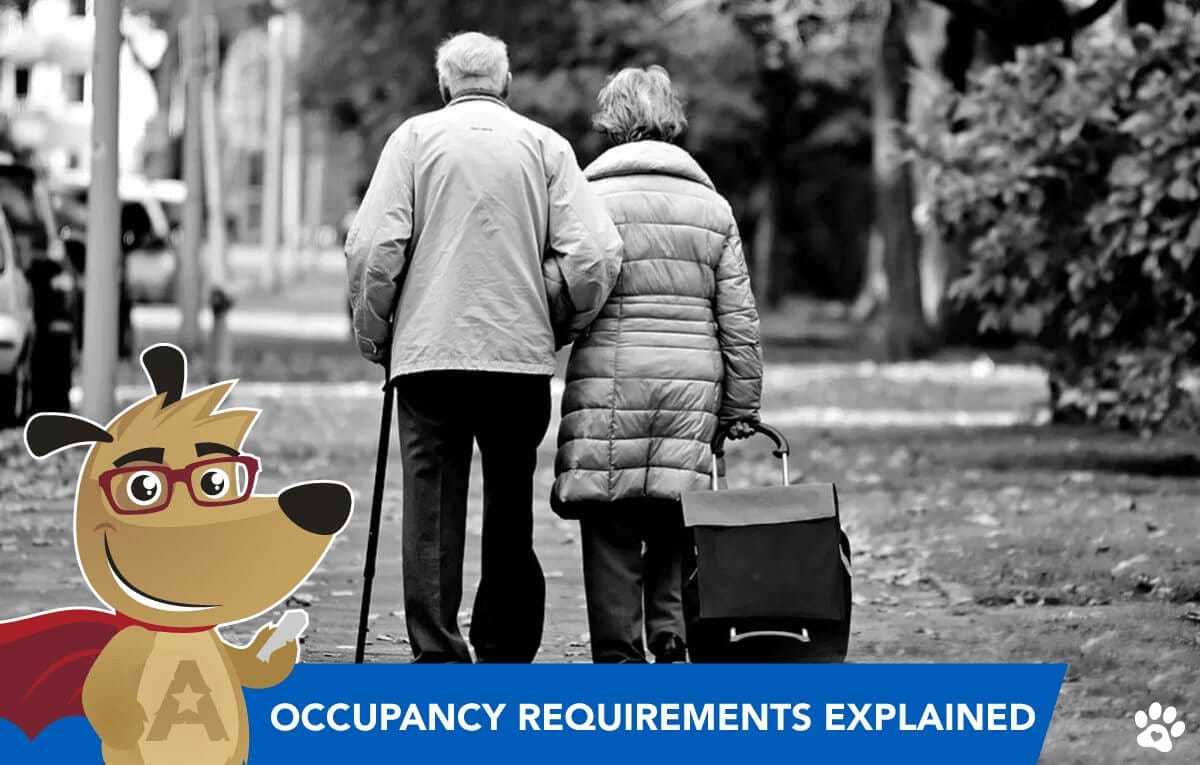How Long Can You Leave Home with a Reverse Mortgage?
 |
Michael G. Branson, CEO of All Reverse Mortgage, Inc., and moderator of ARLO™, has 45 years of experience in the mortgage banking industry. He has devoted the past 20 years to reverse mortgages exclusively. (License: NMLS# 14040) |
 |
All Reverse Mortgage's editing process includes rigorous fact-checking led by industry experts to ensure all content is accurate and current. This article has been reviewed, edited, and fact-checked by Cliff Auerswald, President and co-creator of ARLO™. (License: NMLS# 14041) |
How long could that homeowner be absent (e.g., on an extended vacation) before they would be considered not residing in the house? Would they be allowed someone else living in the house to care for them?
I will start with the second question as it is more straightforward to answer without reservations.
The reverse mortgage does not prohibit a borrower from having anyone else live on the property, such as a family member or a live-in caregiver. The borrower may undoubtedly bring in help to assist them in their living needs, whether that be family or a paid medical caregiver.
If and when the borrower leaves the home to reside in a nursing care facility or passes, the loan would become due and payable. It would be up to the borrower’s heirs to contact the servicer to make arrangements to sell the property, refinance the loan, or pay off the loan with other funds.

Occupancy Terms in Your HECM Security Instrument
In California, the Deed of Trust, which serves as the Security Instrument for HECM, has explicit provisions regarding extended absences due to health issues. It stipulates that if the property isn’t the principal residence of at least one original borrower for 12 consecutive months post-closing due to mental or physical illness, the loan may be accelerated, meaning the debt becomes due and payable.
This implies that the loan must be settled in full if a borrower is institutionalized for health reasons beyond a year and no other original borrower resides in the home.
Leaving Home Unrelated to Health: The Undefined Territory
The Deed of Trust does not explicitly define the allowable duration for non-health-related absences, such as extended vacations. Typically, a simple notification to the loan servicer about an extended vacation should suffice to avoid misunderstandings.
What Constitutes a Primary Residence?
The crux of the matter lies in whether the absence is extensive enough for the property to be considered no longer the primary residence. For instance, a 3 to 4-month vacation generally doesn’t raise concerns with servicers. However, an absence of 2 years would likely lead to the conclusion that the home is no longer the principal residence, prompting the servicer to invoke HUD rules and declare the loan due and payable.
The Gray Area of “Vacation” Absences
Unfortunately, the Deed of Trust does not specify a duration for “vacation” absences. As such, policies can vary and are subject to interpretation by HUD and the servicer. What is permissible now may not necessarily be so in the future if not explicitly outlined in your loan documents.
Maintaining Open Lines of Communication with Your Loan Servicer
Proactive Communication is Key
Maintaining open and proactive communication with your loan servicer is critical, especially if you plan to be away from your home for extended periods. If you have a reverse mortgage and are planning significant travel, inform your servicer in advance.
Ensuring Compliance with Primary Residence Requirements
By keeping your servicer in the loop, they can be confident that the home remains your primary residence, a fundamental requirement of the reverse mortgage agreement. This transparency allows the servicer to accommodate your situation without any misunderstandings arising.
Avoiding Potential Issues
Problems arise when borrowers are not forthcoming or try to conceal their extended absences. The inability to contact borrowers can lead to the assumption that the home is unoccupied, prompting servicers to initiate procedures based on vacancy protocols.
Helpful Resources
For more detailed information, download the informative brochure on occupancy requirements from our servicing company, Celink, which provides valuable guidance on how to stay compliant with your reverse mortgage terms while enjoying extended travel.
Click here to download the Celink Occupancy Requirements PDF brochure.
Occupancy FAQs
Do you have to live in your home for a reverse mortgage?
What happens when you move out of a home with a reverse mortgage?
Can someone live with you if you have a reverse mortgage?
Can you rent a room in your home with a reverse mortgage?
Can you have a tenant with a reverse mortgage?
How long can a person leave their home when they have a reverse mortgage?
ARLO recommends these helpful resources:




 Michael G. Branson
Michael G. Branson Cliff Auerswald
Cliff Auerswald

February 6th, 2024
February 6th, 2024
October 25th, 2023
October 25th, 2023
October 15th, 2023
October 17th, 2023
December 15th, 2022
December 15th, 2022
November 14th, 2022
November 14th, 2022
November 4th, 2022
November 4th, 2022
August 19th, 2022
August 19th, 2022
May 24th, 2021
May 24th, 2021
November 3rd, 2021
November 7th, 2021
April 13th, 2021
April 13th, 2021
March 2nd, 2021
March 2nd, 2021
December 8th, 2020
December 8th, 2020
November 29th, 2020
November 11th, 2020
November 11th, 2020
October 8th, 2020
October 8th, 2020
July 27th, 2020
July 27th, 2020
September 18th, 2021
October 8th, 2021
May 17th, 2020
May 17th, 2020
May 3rd, 2020
May 3rd, 2020
March 9th, 2020
March 9th, 2020
February 19th, 2020
February 19th, 2020
December 23rd, 2019
December 23rd, 2019
December 23rd, 2019
December 23rd, 2019
September 6th, 2019
September 8th, 2019
September 4th, 2019
September 4th, 2019
August 25th, 2019
August 25th, 2019
August 12th, 2019
August 12th, 2019
July 29th, 2019
July 29th, 2019
May 1st, 2019
May 1st, 2019
May 27th, 2018
May 29th, 2018
May 25th, 2017
May 25th, 2017
February 4th, 2017
February 6th, 2017
February 3rd, 2017
February 3rd, 2017
February 1st, 2017
February 1st, 2017
December 31st, 2016
January 3rd, 2017
November 29th, 2015
December 8th, 2015
October 10th, 2015
December 8th, 2015
April 1st, 2015
April 1st, 2015
March 28th, 2015
March 30th, 2015
January 30th, 2015
January 30th, 2015
December 25th, 2014
December 29th, 2014
October 20th, 2014
October 20th, 2014
September 12th, 2013
October 8th, 2013
May 1st, 2013
May 3rd, 2013
May 1st, 2013
June 4th, 2013
February 1st, 2012